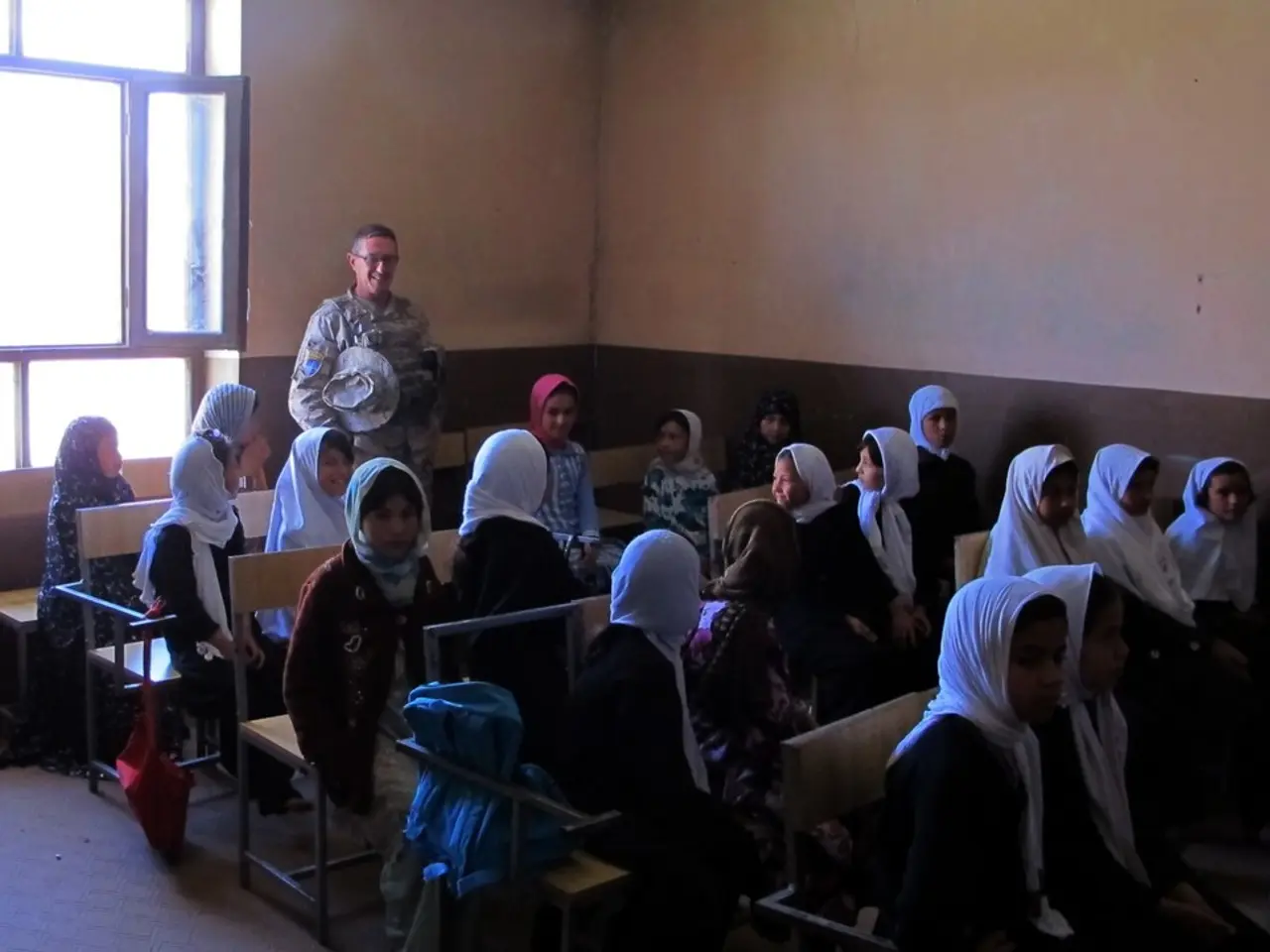Time constraint: Limited to the following hours:
In Brandenburg, negotiations for a potential relief package for teachers are underway, but unions have yet to accept the terms. This comes as the state parliament has decided to cut 345 full-time teaching positions for the coming school year.
The Otto Lilienthal primary school in Wustermark (Havelland district) has voiced concerns about the potential increase in average class size due to the reduction in teaching staff. The Trade Union of Education and Science has also warned of potential class size increases in the new school year. The Education and Science Union (GEW) plans to file a constitutional complaint against the additional teaching hour.
Despite the cuts, the education budget in the state budget is growing. Teachers will have to teach one more hour per week from the second half of the year, with relief elsewhere. However, the SPD/BSW coalition has set a high budget for substitute teachers. More than 1,200 new teaching staff have already been hired for the coming school year.
The state parliament has provided an additional 14.5 million euros for the substitute reserve. School inspections for the coming school year have been suspended. Creating report cards should be easier, and fewer class assignments should be mandatory. The minister stated that schools in Brandenburg are "well-equipped with teacher hours" compared to 15 years ago or other states.
However, the reduction in teaching positions can have several potential impacts. Class sizes may increase, potentially impacting the quality of education and teacher workload. Larger classes can make it more challenging for teachers to provide personalized attention to students. Schools might need to reduce the variety of courses or electives offered to students due to the reduced number of teachers. This could limit students' opportunities to explore different subjects and interests.
The reduction could lead to changes in educational policies, such as prioritizing core subjects over elective ones or adopting more digital or online learning methods to compensate for the lack of teachers. Remaining teachers might face increased workloads, potentially leading to burnout and decreased job satisfaction.
Programs that require specialized teachers, such as those for students with special needs, might be particularly affected if there are not enough teachers to support them. Schools in rural areas that are too small will be deliberately kept open.
The CDU faction leader Jan Redmann rated the school policy a 5, while Green party state leader Andrea Lubcke rated it a 6, given the cuts and lesson cancellations. The AfD faction sees major problems with lesson cancellations, which vary greatly by region.
For specific details about how these factors would play out in Brandenburg schools, consultation with local educational authorities or news reports from the region would be necessary. The future of education in Brandenburg remains a topic of ongoing discussion and debate.
- The Education and Self-Development Union (GEW) is planning to file a constitutional complaint against the additional teaching hour, expressing concerns about potential impacts on education quality, teacher workload, and the possibility of class size increases.
- General news reports suggest that the reduction in teaching positions in Brandenburg may lead to changes in educational policies, potentially affecting the variety of courses offered, emphasizing core subjects over elective ones, and embracing digital or online learning methods due to a lack of teachers.




